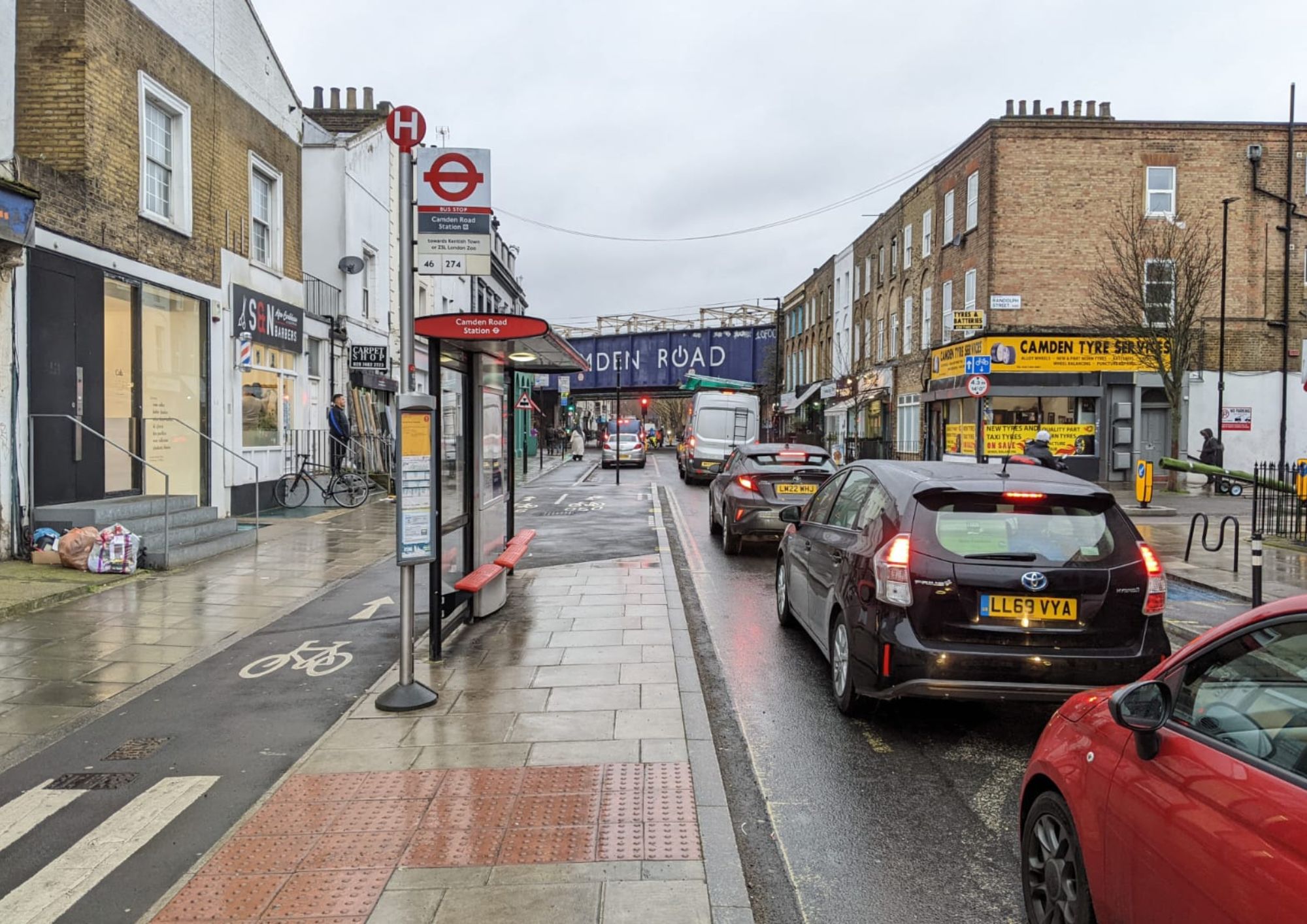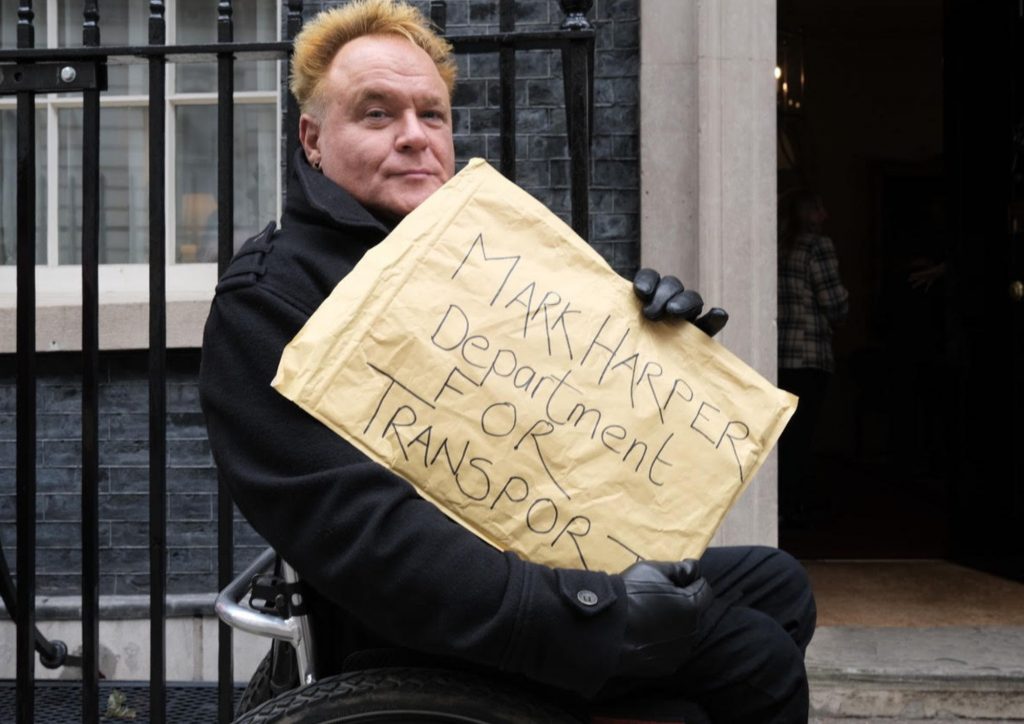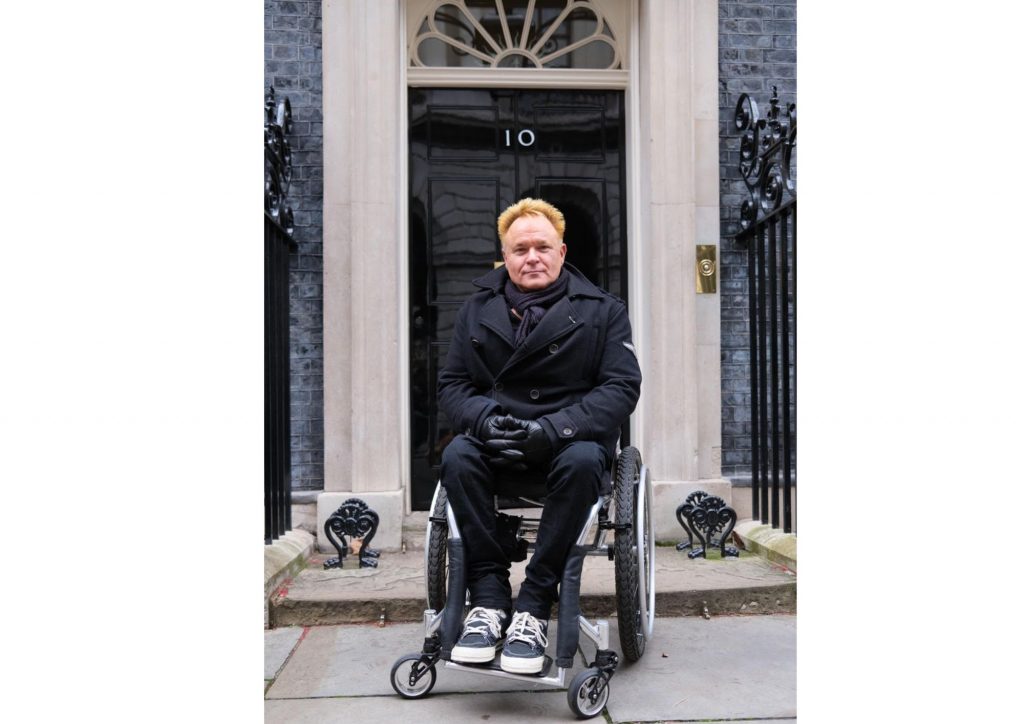Campaign against ‘floating bus stops' reaches Downing Street
Campaigner Mik Scarlett demands rethink over layouts making life worse for disabled and visually impaired
Thursday, 29th February — By Tom Foot

A floating bus stop in Royal College Street
THE disabled, blind and visually impaired and elderly people’s lives have been worsened by new-style “floating” bus stops, campaigners warned as they handed in a petition at Downing Street.
The National Federation of the Blind of the UK (NFB) and 160 supporting groups, including Visually Impaired Camden, have backed the calls for a major rethink of the cycling safety infrastructure. Research shows that cyclists are routinely not stopping at zebra crossings leading to the bus stops that are marooned like island in between cycle lanes and the main road.
Camden Town’s Mik Scarlet, who delivered the petition to Number 10, said: “People say, ‘Well what about the danger to cyclists? What about the environment, what about the children of the future?’ Well some of those children will be disabled. Some will be blind. Our voices aren’t being heard.
“These kind of changes have got to be better for everyone or else it has not been done right. We need to stop, slow the hell down. Once we have got it right then let’s start shouting about it.
“We are not anti-cycling. I am pro-cycling and pro making cycling more accessible for all. Active travel should be something everyone can do too. Most blind people are not going to cycle. They can’t be collateral damage.”

Mik Scarlet takes the message to No. 10 [Simon Lamrock]
He added: “We are a protected group, cyclists are not. We have an extra right to be safe, because it says so in law. There is a public sector duty not to discriminate against anyone.”
Mr Scarlet said the floating bus stops – like the one outside Stables Market in Chalk Farm Road – were so narrow that when the disabled ramp came out of the bus his wheelchair had to go into the lane.
A former TV presenter who now runs his own consultancy firm, he questioned why cyclists being allowed to maintain momentum was favoured over the danger to elderly and disabled getting on and off buses.
This “badly planned” design was part of a “weird explosion” of infrastructure that had been “rushed” out across London during and after the pandemic, he said.
Mr Scarlet said campaigners against floating bus stops were being unfairly portrayed as “moany people”, adding: “The problem is that people are having their world shrunk. It is truly horrible when you spend time hearing people’s stories. Seeing the emotion. For me, it makes things awkward and difficult. But there are blind people who can’t use them without actual fear.”

Mik Scarlet [Simon Lamrock]
The NFB has made a film about its members’ experiences of near-misses. Transport for London research into the floating bus stops last week revealed that 60 per cent of cyclists do not obey road rules by giving way to pedestrians at crossings.
Sarah Gayton, of the National Federation for the Blind UK, said the Mayor of London’s Walking and Cycling Commissioner, Will Norman, should resign over the figures. But the data also shows that just four people – out of 623 pedestrians recorded as injured in a collision with a cyclist between 2020 and 2022 – were hit at one of the floating bus stops.
Mr Norman said: “Where there was a pedestrian/cyclist interaction, a significant number of cyclists did not yield to pedestrians [60 per cent didn’t yield, compared to 40 per cent that did].
“Most often non-yielding involved the pedestrian waiting until the cyclists had passed; some occasions the cyclists would pass the pedestrian on the crossing, and other occasions the pedestrian did not cross at all and continued to stand at the crossing until a bus arrived.”
